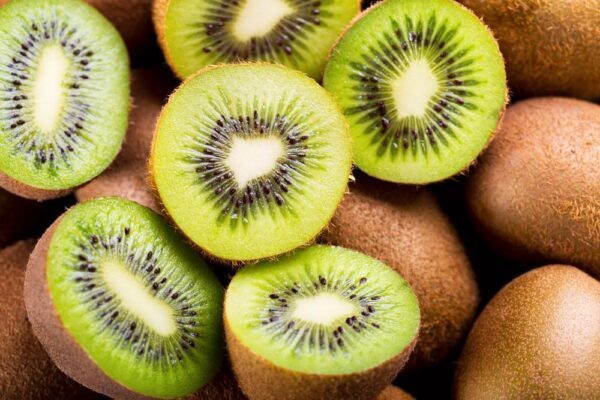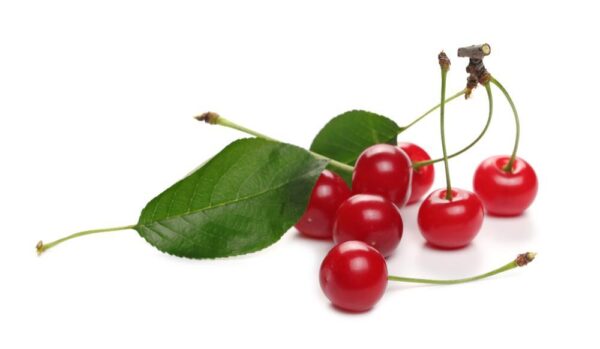Do You Get Enough Good-Quality Sleep? 6 Foods to Help You Sleep
Sleep is vital to human health. It allows our bodies to rest, repair, and rebuild. Sleep deprivation affects work performance, efficiency, and productivity. Lack of sleep also increases the risk of chronic diseases like Type 2 diabetes, heart disease, obesity, and depression. According to the U.S. Centers for Disease Control and Prevention (CDC), about one-third of adults in the United States often do not get enough sleep. Fortunately, certain foods can promote sleep and regulate your sleep cycle. Here are six healthy foods that can help improve sleep quality. 1. Almonds Almonds are rich in melatonin, a biorhythm hormone produced by the pineal body, which regulates the sleep-wake rhythm in the human body. A 2007 study published in Scoliosis mentioned that melatonin can help treat sleep disorders and tumors. It helps regulate mood, emotional disturbance, reproduction, the cardiovascular system, and aging. Data from the U.S. Department of Agriculture shows that every 100 grams of almonds contain 270 milligrams of magnesium and 269 milligrams of calcium. Magnesium and calcium are minerals that promote muscle relaxation and sleep. Magnesium is one of the most essential minerals in the human body, maintaining balance in over 300 enzyme systems. It impacts our circadian rhythm. Research shows that magnesium may also benefit older people’s sleep and brain function. A 2012 study published in the Journal of Research in Medical Sciences revealed that magnesium supplementation could improve subjective and objective indicators of insomnia in the elderly. These indicators include sleep efficiency, duration, latency, waking up, serum renin, melatonin, and serum cortisol concentration. 2. Chamomile Tea Chamomile is widely known as a mild sedative and sleep inducer. A cup of soothing chamomile tea helps you fall asleep. A study published in Phytotherapy Research in 2019 points out that symptoms and sleep quality of patients with generalized anxiety disorder (GAD) significantly improved after chamomile treatment. In the study, chamomile was found to be practical and safe for GAD and sleep quality. However, there is no evidence that chamomile impacts anxiety and insomnia. Large-scale, randomized, and controlled trials are needed to determine this. That said, chamomile preparations, such as tea and essential oil aromatherapy, have been used for treating insomnia and inducing calmness. The cells in chamomile bind with benzodiazepine receptors in the brain to create a calming effect. It is worth noting that chamomile may aggravate asthma, so asthma patients should not consume it. Pregnant women should also consult their physicians and medical professionals before using chamomile, as it may increase the risk of miscarriage. 3. Kiwis Kiwi is rich in nutrients such as vitamin C, potassium, and vitamin E. Eating kiwi before bed can help people with sleep disorders fall asleep faster, stay asleep longer, and reduce the frequency they wake up at night. In a 2011 study published in the Asia Pacific Journal of Clinical Nutrition, 24 subjects aged 20 to 55 (two men and 22 women) consumed two kiwis an hour before bed every night for four weeks. After four weeks of kiwi consumption, testing subjects could fall asleep faster, and their total sleep time and efficiency improved. Eating kiwis before bed can help you fall asleep. (Nitr/Shutterstock) Kiwi contains a high amount of the neurotransmitter and hormone serotonin. Serotonin, together with dopamine, affects sleep quality and sleep duration. The brain also needs serotonin to produce melatonin, a hormone regulating the sleep-wake cycle. Hence serotonin is crucial for your sleep. A 2006 study showed that serotonin affects sleep and day-night rhythm through different receptors. 4. Bananas Bananas are rich in vitamin B6, vitamin C, potassium, fiber, magnesium, and manganese. Vitamin B6, a water-soluble vitamin, plays a role in synthesizing constant nutrients. It also acts as a coenzyme in pathways involving neurotransmitters such as serotonin. Vitamin B6 is often used as an ingredient in sleep drugs. A clinical study published in the Journal of Perceptual and Motor Skills in 2002 revealed that vitamin B6 supplements can enhance the ability to recall dreams, affect perceptions of dreams, and make dreams a more vivid and colorful experience. A study published in Nutrients in 2020 found vitamin C is also necessary for sleep. Vitamin C lengthens sleep duration in healthy people and cancer patients and reduces the impacts of sleep disorders and the potential risk of sleep apnea. Vitamin C is also necessary for many metabolic reactions and antioxidant protection during exercise. Supplementing with vitamin C may also alleviate movement disorder symptoms. 5. Cherries Cherry is an antioxidant-rich and anti-inflammatory fruit containing polyphenols and vitamin C. Research shows that consuming cherry concentrate increases exogenous melatonin. Melatonin made in the

Sleep is vital to human health. It allows our bodies to rest, repair, and rebuild. Sleep deprivation affects work performance, efficiency, and productivity.
Lack of sleep also increases the risk of chronic diseases like Type 2 diabetes, heart disease, obesity, and depression.
According to the U.S. Centers for Disease Control and Prevention (CDC), about one-third of adults in the United States often do not get enough sleep.
Fortunately, certain foods can promote sleep and regulate your sleep cycle. Here are six healthy foods that can help improve sleep quality.
1. Almonds
Almonds are rich in melatonin, a biorhythm hormone produced by the pineal body, which regulates the sleep-wake rhythm in the human body.
A 2007 study published in Scoliosis mentioned that melatonin can help treat sleep disorders and tumors. It helps regulate mood, emotional disturbance, reproduction, the cardiovascular system, and aging.
Data from the U.S. Department of Agriculture shows that every 100 grams of almonds contain 270 milligrams of magnesium and 269 milligrams of calcium.
Magnesium and calcium are minerals that promote muscle relaxation and sleep.
Magnesium is one of the most essential minerals in the human body, maintaining balance in over 300 enzyme systems.
It impacts our circadian rhythm. Research shows that magnesium may also benefit older people’s sleep and brain function.
A 2012 study published in the Journal of Research in Medical Sciences revealed that magnesium supplementation could improve subjective and objective indicators of insomnia in the elderly. These indicators include sleep efficiency, duration, latency, waking up, serum renin, melatonin, and serum cortisol concentration.
2. Chamomile Tea
Chamomile is widely known as a mild sedative and sleep inducer. A cup of soothing chamomile tea helps you fall asleep. A study published in Phytotherapy Research in 2019 points out that symptoms and sleep quality of patients with generalized anxiety disorder (GAD) significantly improved after chamomile treatment.
In the study, chamomile was found to be practical and safe for GAD and sleep quality.
However, there is no evidence that chamomile impacts anxiety and insomnia. Large-scale, randomized, and controlled trials are needed to determine this.
That said, chamomile preparations, such as tea and essential oil aromatherapy, have been used for treating insomnia and inducing calmness. The cells in chamomile bind with benzodiazepine receptors in the brain to create a calming effect.
It is worth noting that chamomile may aggravate asthma, so asthma patients should not consume it.
Pregnant women should also consult their physicians and medical professionals before using chamomile, as it may increase the risk of miscarriage.
3. Kiwis
Kiwi is rich in nutrients such as vitamin C, potassium, and vitamin E.
Eating kiwi before bed can help people with sleep disorders fall asleep faster, stay asleep longer, and reduce the frequency they wake up at night.
In a 2011 study published in the Asia Pacific Journal of Clinical Nutrition, 24 subjects aged 20 to 55 (two men and 22 women) consumed two kiwis an hour before bed every night for four weeks.
After four weeks of kiwi consumption, testing subjects could fall asleep faster, and their total sleep time and efficiency improved.

Kiwi contains a high amount of the neurotransmitter and hormone serotonin. Serotonin, together with dopamine, affects sleep quality and sleep duration.
The brain also needs serotonin to produce melatonin, a hormone regulating the sleep-wake cycle.
Hence serotonin is crucial for your sleep.
A 2006 study showed that serotonin affects sleep and day-night rhythm through different receptors.
4. Bananas
Bananas are rich in vitamin B6, vitamin C, potassium, fiber, magnesium, and manganese. Vitamin B6, a water-soluble vitamin, plays a role in synthesizing constant nutrients. It also acts as a coenzyme in pathways involving neurotransmitters such as serotonin.
Vitamin B6 is often used as an ingredient in sleep drugs.
A clinical study published in the Journal of Perceptual and Motor Skills in 2002 revealed that vitamin B6 supplements can enhance the ability to recall dreams, affect perceptions of dreams, and make dreams a more vivid and colorful experience.
A study published in Nutrients in 2020 found vitamin C is also necessary for sleep. Vitamin C lengthens sleep duration in healthy people and cancer patients and reduces the impacts of sleep disorders and the potential risk of sleep apnea.
Vitamin C is also necessary for many metabolic reactions and antioxidant protection during exercise. Supplementing with vitamin C may also alleviate movement disorder symptoms.
5. Cherries
Cherry is an antioxidant-rich and anti-inflammatory fruit containing polyphenols and vitamin C.
Research shows that consuming cherry concentrate increases exogenous melatonin. Melatonin made in the body is described as endogenous; melatonin the body obtains from outside (food) is called exogenous. Since exogenous melatonin is conducive to improving the duration and quality of sleep in healthy men and women, it may also help control sleep disorders.
A study published in the American Journal of Therapeutics in 2018 showed that sour cherry juice and its active ingredient, procyanidin B-2, could safely and effectively improve insomnia.
Unlike hypnotic drugs, cherry juice will not increase fall incidence or other side effects.

6. Milk
Drinking a glass of warm milk before bed is a common home remedy for insomnia. Rich in calcium, milk promotes bone health and lowers the risk of osteoporosis.
Milk is also abundant in tryptophan and vitamin D, both connected to improved sleep .
Tryptophan can be converted into serotonin and melatonin, resulting in relaxation and sleepiness.
Supplementing with tryptophan stimulates serotonin activity and promotes sleep, while serotonin released to the brain and midbrain is a crucial inhibitor of insomnia.
A review published in Nutrients in 2022 discovered that vitamin D is also critical in regulating sleep.
A systematic review in the 2020 International Journal of Environmental Research and Public Health showed that a balanced diet, including milk and dairy products, can improve sleep quality.












